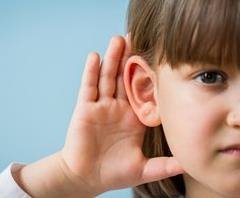Tonsillitis
Lee Health: Your Trusted Health Partner for Treating Tonsillitis
Lee Health Pediatric ENTs are here to help you understand your treatment options for tonsillitis. As a common and treatable condition we understand the importance of efficient, compassionate care for your child.
What is tonsillitis?
Tonsillitis is the inflammation of the tonsils which are two oval-shaped pads of tissue located on either side at the back of your throat. Your tonsils act as filters to trap germs that otherwise would enter your airways causing infection. They also make antibodies to help fight infection. Tonsillitis is common, especially in children, and can happen once in a while or reoccur frequently in a short period. In most cases tonsillitis is caused by infection with a common virus, but tonsillitis can also be caused by bacterial infections.
There are three types of tonsillitis:
- Acute tonsillitis, a single occurrence of tonsillitis with symptoms that lasts 3 or 4 days but can last up to 2 weeks
- Recurrent tonsillitis, when you get tonsillitis several times in a year
- Chronic tonsillitis, a long-term tonsil infection
Because treatment for tonsillitis depends on the cause, it is important to get a prompt and accurate diagnosis.
-
Pediatric Primary Care
Pediatricians who are dedicated to our community's youth. Lee Health's hub for pediatrics in SWFL.
Tonsillitis Symptoms
The main symptoms of tonsillitis are inflamed and swollen tonsils, sometimes severe enough to make it hard to breathe through your mouth. Other symptoms include:
- Throat pain or tenderness
- Fever sometimes accompanied by chills
- Red, swollen tonsils
- A white or yellow coating on your tonsils
- Painful blisters or ulcers on your throat
- A scratchy or muffled voice
- Swollen glands in your neck or jaw
- Stiff neck
- Trouble swallowing
- Headache
- Loss of appetite
- Referred Ear pain
- Bad breath
Additionally children may experience symptoms including:
- Stomach pain
- Upset stomach
- Not wanting to eat or swallow
- Vomiting
- Drooling
-
Pediatric Ear, Nose & Throat - Golisano Children's Health Center
-
Golisano Pediatric Ear, Nose & Throat - HealthPark Commons
Causes and Risks of Tonsillitis
Bacterial and viral infections cause tonsillitis, with Streptococcus (strep) bacteria being the most cause. Other common causes include:
- Adenoviruses
- Influenza virus
- Epstein-Barr virus
- Parainfluenza viruses
- Enteroviruses
- Herpes simplex virus
Additionally, both age and germ exposure can put you at greater risk of getting tonsillitis. Children between the ages of 5 and 15 are more likely to get tonsillitis as well as elderly adults. Germ exposure can contribute to the risk due to how easily infections that lead to tonsillitis can spread among kids and their caregivers.
When to call your Lee Health Pediatric ENT:
It is important to get an accurate diagnosis as soon as you suspect your child may have tonsillitis.
Call your doctor if your child is experiencing:
- A sore throat with fever
- A sore throat that doesn't go away within 24 to 48 hours
- Painful or difficult swallowing
- Extreme weakness, fatigue or fussiness
Get immediate care if your child has any of these signs:
- Difficulty breathing
- Extreme difficulty swallowing
- Excessive drooling
Diagnosing Tonsillitis
In order to accurately diagnose your child's tonsillitis, their Lee Health Pediatric ENT will conduct a physical exam to see if your child's tonsils are red, swollen, or have pus on them. Additionally they will check for fever, swelling and pain in the neck, and potential signs of ear or nose infections.
Additionally your Lee Health provider may:
- Conduct a throat swap to test your saliva for strep bacteria.
- Run a blood test to look for high or low numbers of blood cells to accurately assess whether a virus or bacteria is causing tonsillitis
- Check for scarlatina, a rash linked to strep throat infections.








